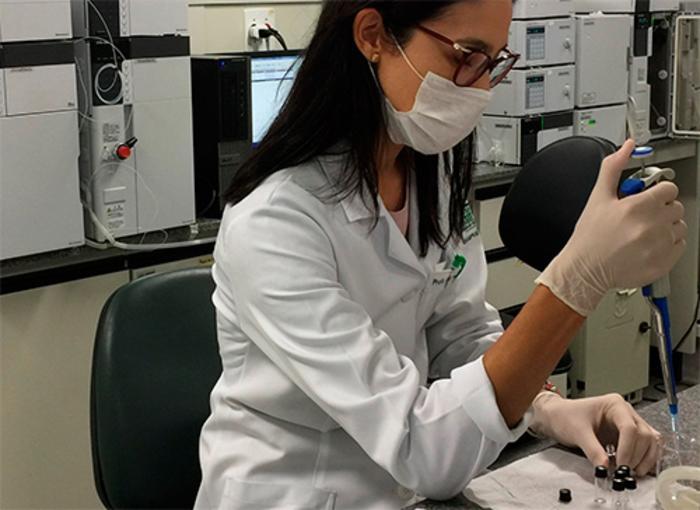Oral health deteriorates in morbidly obese people on a diet in preparation for bariatric surgery and patients who have undergone the procedure, with increasing caries, gingivitis and periodontitis. This is the conclusion of a study conducted by researchers at the Federal University of São Paulo (UNIFESP) in Brazil. Articles on the study are published in the Journal of Oral Rehabilitation and Clinical Oral Investigations, stressing the importance of participation by a dentist in the assessment of bariatric patients.

Credit: UNIFESP
Oral health deteriorates in morbidly obese people on a diet in preparation for bariatric surgery and patients who have undergone the procedure, with increasing caries, gingivitis and periodontitis. This is the conclusion of a study conducted by researchers at the Federal University of São Paulo (UNIFESP) in Brazil. Articles on the study are published in the Journal of Oral Rehabilitation and Clinical Oral Investigations, stressing the importance of participation by a dentist in the assessment of bariatric patients.
The study was funded by FAPESP (projects 17/26400-6 and 16/10940-9), following 100 patients divided into two groups (dietary counseling and gastroplasty) at the Bariatric Clinic in Piracicaba, São Paulo state. The clinic performs some 50 such operations per month, mainly under the auspices of the SUS (“Sistema Único de Saúde”), Brazil’s national health service.
Questionnaires, oral examinations, saliva samples and cheek swabs were analyzed to determine dietary changes, weight loss, inflammatory markers, oral microbiota by sequencing, and dental and periodontal health before the operation, as well as three and six months after the operation or start of the diet.
“The patients were asked to floss and brush their teeth three times a day, but even so their oral health deteriorated significantly. The number of caries rose, and periodontal status worsened in a short period in both groups, but particularly in the gastroplasty group,” said oral physiologist Paula Midori Castelo Ferrua, a professor in the Department of Pharmaceutical Sciences at UNIFESP and last author of both articles.
Salivary markers showed impairment of acid buffering capacity, essential for maintaining pH and preventing demineralization of tooth enamel. Bacterial genome sequencing showed alterations of microbiota diversity, especially in the gastroplasty group, so that the proportion of microorganisms that cause periodontitis increased.
The diet of many patients was found to have improved, but profound dietary changes were believed to be the main cause of the deterioration in oral health, especially because more frequent daily meals were not accompanied by more frequent tooth cleaning, and more food was liquid or puréed in the first few months after surgery.
“There’s less fiber in the diet and no chewing is required, so the food sticks to the enamel and biofilm forms on the tooth surface. Without chewing, less saliva is secreted and acid buffering capacity decreases,” Castelo said.
Future improvements
More than 300,000 bariatric surgeries were performed in Brazil in the period 2017-22. They were paid for by the SUS and health insurance plans. The multidisciplinary teams responsible for these patients include physicians, physical therapists, nutritionists and psychologists. Dentists are not usually included, despite the oral health risks entailed by the drastic change in diet both before and after the operation.
The results of the study show that assessing the patient’s oral health before and after bariatric surgery is essential. They also point to next steps for researchers in the field, which should include determining the best preventive or therapeutic intervention to resolve oral health problems during the pre-operative diet and post-operative recovery period, testing well-established methods such as fluoride application, reinforcement of brushing and flossing, and analyzing financial viability and ease of implementation by the SUS.
“Specific oral health guidelines for people who seek treatment for morbid obesity will also be important in future,” Castelo said.
About São Paulo Research Foundation (FAPESP)
The São Paulo Research Foundation (FAPESP) is a public institution with the mission of supporting scientific research in all fields of knowledge by awarding scholarships, fellowships and grants to investigators linked with higher education and research institutions in the State of São Paulo, Brazil. FAPESP is aware that the very best research can only be done by working with the best researchers internationally. Therefore, it has established partnerships with funding agencies, higher education, private companies, and research organizations in other countries known for the quality of their research and has been encouraging scientists funded by its grants to further develop their international collaboration. You can learn more about FAPESP at www.fapesp.br/en and visit FAPESP news agency at www.agencia.fapesp.br/en to keep updated with the latest scientific breakthroughs FAPESP helps achieve through its many programs, awards and research centers. You may also subscribe to FAPESP news agency at http://agencia.fapesp.br/subscribe.
Journal
Clinical Oral Investigations
DOI
10.1007/s00784-023-05101-3
Article Title
Bypass gastroplasty impacts oral health, salivary inflammatory biomarkers, and microbiota: a controlled study
Article Publication Date
9-Jun-2023




